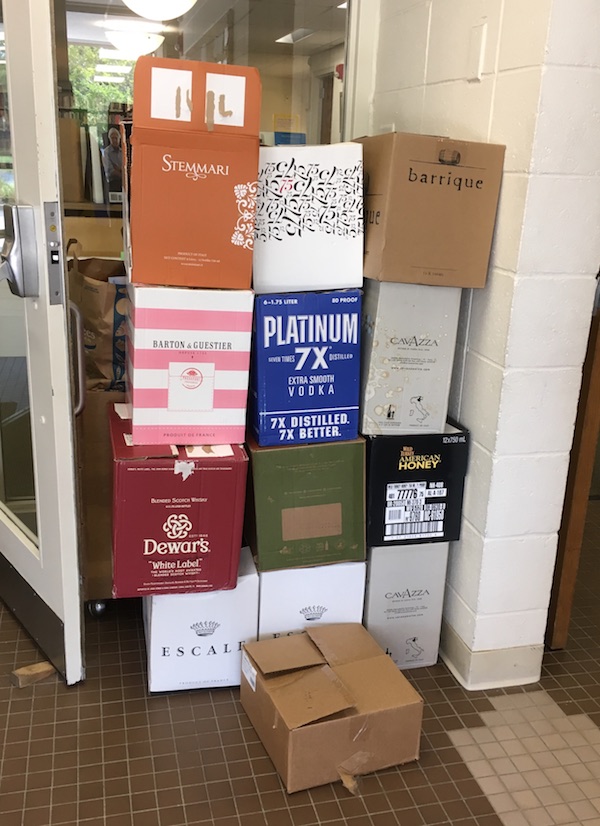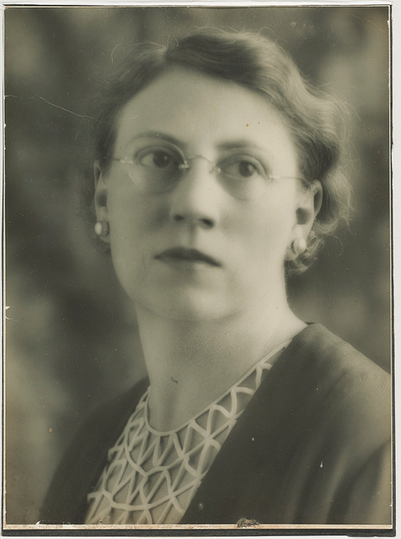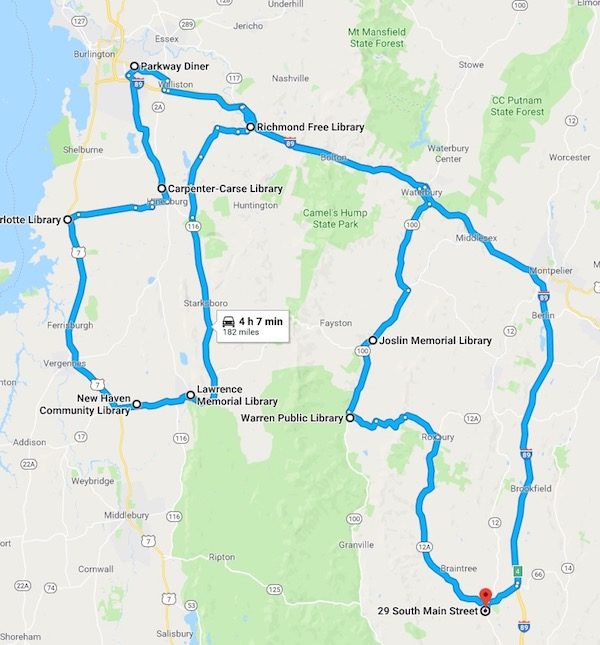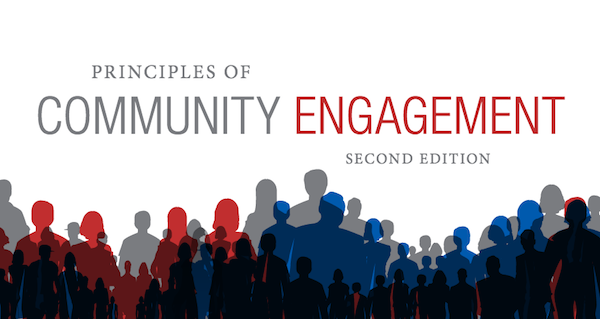
When you work with libraries, people ask you a lot of questions about what to do with old books, presumably books they don’t want. Here are ten tips that are good to know about donating books in general. Continue reading “Ask a Librarian: What do I do with these old books?”
Ask a Librarian: How to engage a community with limited volunteer hours?
From the email box: One of my book followers is doing something very brave for her, volunteering at her branch library. It’s a little branch with a lady running it, who is something out of the 1950’s — and not in a good way. It’s quiet. It’s serious. And it’s falling apart without any new visitors at all. So, this lady is asking her new one-day-a-week volunteer to “do something†to get new people to come into the library.
I’ve been giving my friend lots of ideas, based on what I see at my own very vibrant branch library – including mothers’ clubs, reading hours and clubs, tech training, etc. But I wonder if you are aware of some source of inspiration to help library workers that are very low on the ladder, yet eager to invite new energy to a branch? Maybe you have a clever list of the easiest and most successful types of library programs? What seeds can they plant and how often should they be watered?
I think that is a good idea. First off: Five Minute Librarian is made for your friend
http://www.5minlib.com/ Continue reading “Ask a Librarian: How to engage a community with limited volunteer hours?”
But this IS what a librarian does – the rhetorical value of being a librarian

You may have seen the news, my small claims case against Equifax was mostly successful. This delights me. Mostly because the whole campaign was effective at what I set out to do: raise awareness about online privacy, data brokers, your right to access the court system and seek a redress of grievances, and generally help people understand the world of interconnected systems that we exist within whether we want to or not, whether we opt in or not.
And, for various reasons, the fact that I am a librarian always made it into the headlines: Continue reading “But this IS what a librarian does – the rhetorical value of being a librarian”
Back at my Vermont 183 project

It’s been a while since I talked about my library visiting in earnest. Vermont has a 251 Club, a pretty informal group who have the aim to visit all of Vermont’s 251 towns. I love the idea (I’ve been to all the towns, now going back to photograph them) and have extended it to libraries. The Passport to Vermont’s Libraries project that VLA did for three years was basically an outgrowth of this. But now it’s just me and my list and map and car.
Yesterday I gave my Practical Privacy talk in Richmond Vermont (pop. 4000-ish) and had the day free beforehand. I figured I’d go for a drive. I started with VLA’s map of all the public libraries in the state, then used a new tool I’d just made, a list of all the public library websites in the state. From there I made a list of which libraries would actually be OPEN (this is more challenging than it might seem in a library where some libraries are only open 14 hours) and charted my course. I managed to see seven libraries in one long day, had two meals with interesting women–Mary the director of Fletcher Free, and Julie a techie powerhouse who does coding and coaching and public speaking–and gave my talk in the big upstairs room of the Richmond library which had previously been both a church and a basketball court. Here’s where I went. Continue reading “Back at my Vermont 183 project”
Ask a Librarian: File management
A funny thing happened on the way to this blog post.
From a local librarian:I get to take over the duties of someone very beloved by patrons who recently left us and this includes computer help. I’m trying to create a repository of ‘self-help’ documents both for staff who often need it and for patrons to take home with them when we do something like set up an email address and they need the steps repeated. I’d rather not reinvent the wheel… it occurred to me that maybe you already have some that you can share? If not, can you provide me some pointers on what to include?
I’m also charged with cleaning up the staff file system on our server and coming up with good practices for file naming, document organization, and teaching our staff how to do it…. I’m hoping you know of some examples of local libraries with excellent file management in place or a set of best practices somewhere so I can give more models of what I’m trying to fix. Where might I find something like this?
Those sound like challenging tasks. I am happy to help as I can. Some of it is really going to be moving people to a “digital readiness” place where they feel deputized to do some of this themselves and that is challenging and needs to be as much an emotional task as a physical one. Lots of positive “you can do it” feedback and lots of “ok let’s try this again….” sorts of stuff, patience, etc. Trying to view improvement as improvement, even if it’s ever-so-slight as opposed to “Man, this is just a MESS.” I know I’m not telling you things you don’t know, but I have found that if I reframe some of the “work” as just being supportive and patient, I can feel better about what I do manage to get done. Continue reading “Ask a Librarian: File management”

